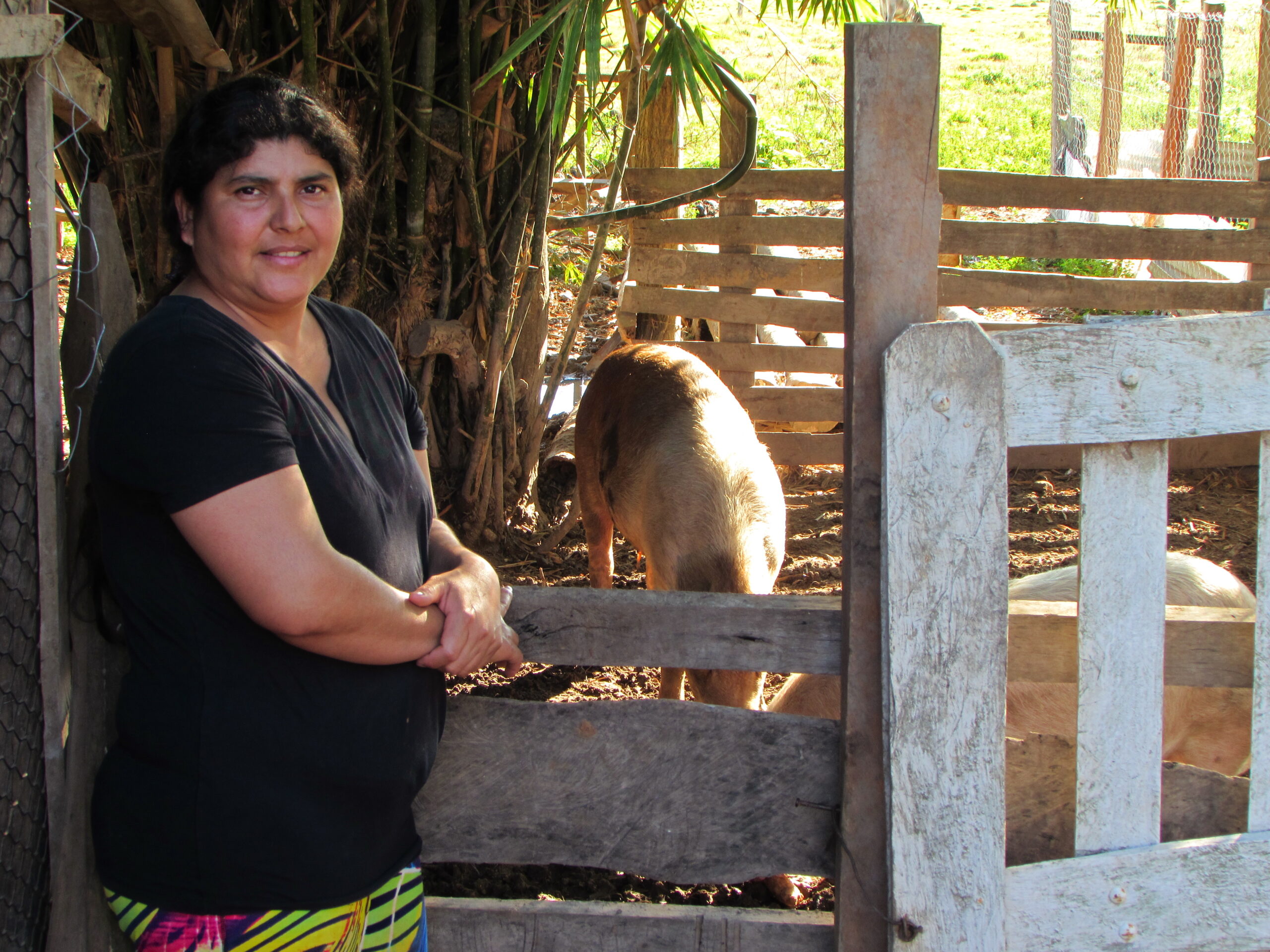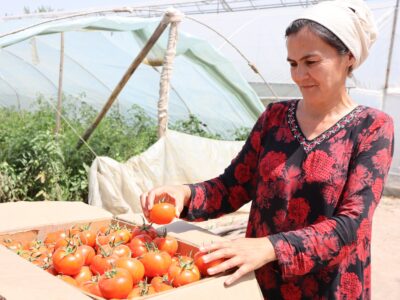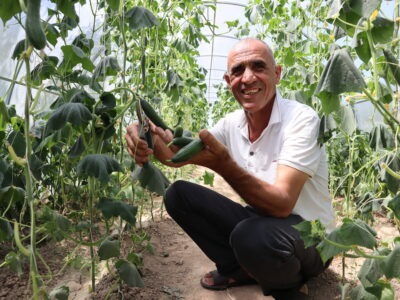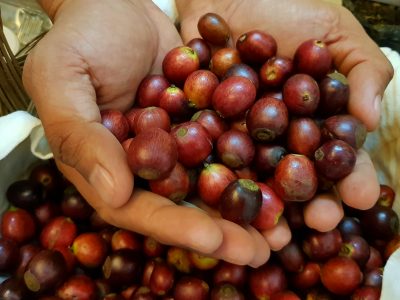
In 2017, a severe storm damaged the home and livelihood of Sonia Hortigosa, 35, who lives in Caracarai, in southeastern Paraguay, with her husband and three children. During that severe climatic event, the rooftop fell and broke the horn of the family’s only cow. The family also lost their cassava and bean production, as did other nearby families.
To address the vulnerability she faced, Sonia got involved with USAID/OFDA’s Promoting Risk and Emergency Preparedness (PREP) program implemented by ACDI/VOCA, which had identified Caracarai as a targeted community.
“Thanks to PREP assistance, now my family does not lack vegetables or animal proteins for consumption during the whole year.” — Sonia Hortigosa
Sonia strengthened her knowledge and abilities, while the PREP team assessed her house and helped her extend her crop production cycles. The PREP team also helped Sonia secure food for her family year-round by planning her planting and harvesting seasons, providing her with short-cycle seeds, and incorporating loss-mitigation measures to protect her crops. These measures include using raised beds, irrigation systems, and compost and organic ground cover to improve soil aeration and fertility.
Sonia says that agricultural production has been a part of her family’s livelihood since she was a child, but that no one had the technical knowledge to produce enough or to produce year-round. “Food in this area was always scarce and limited to our little knowledge on how to sow and care [for] our home garden production,” Sonia comments. “We didn’t know what species to produce or the agricultural cycles or how to treat diseases.”
Through the PREP program, Sonia learned to build small animal husbandry structures for her pigs and chickens. She also learned about proper poultry and swine feeding practices, animal management, pest and disease prevention, vaccination, soil cleanliness, and environmental management to protect her animals’ health, which was identified in PREP’s baseline assessment as her household’s main barrier to producing animal protein.
Once Sonia adopted these new techniques and increased her vegetable production, she discovered a business opportunity and started selling her vegetables and animal products in the city of Caazapá’s local market.
“Beyond improving my family’s diet with fresh vegetables throughout the year, I am contributing to my home and helping my husband.” — Sonia Hortigosa
At first, Sonia sold her surplus vegetables at the market. “Then someone asked me if I have pigs on sale,” she recalls. Her new business contributes additional income to her family. “I just got a brand-new washing machine for my home,” she adds, smiling with pride. “I now have regular customers in the local market, and my husband feels proud of my contribution to our household’s economy.”
Sonia says that her customers now ask her for other varieties of vegetables when she is selling her lettuce, cucumbers, and pumpkins in Caazapá. “Without having anticipated this, I am now opening a customer-focused market to sell my pigs and vegetables that I produced at my horticulture plot.”






